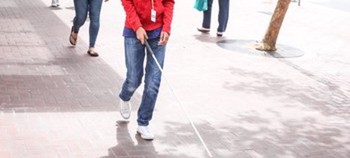A nuanced understanding of the strategies that people who are blind or visually impaired employ to perform different instrumental activities of daily living (iADLs) is essential to the success of future visual accessibility aids.
Catrina Coe
(she/her)
Honors Student
Psychological & Brain Sciences
University of California, Santa Barbara
Catrina Coe is a fourth-year Biopsychology major at UC Santa Barbara completing her Psychology Honors Thesis in the Bionic Vision Lab. Her research examines social perceptions of bionic vision technologies, focusing on how attitudes toward invasive vision-restoring implants differ from those toward non-invasive assistive devices. Using mixed-methods survey data, her work explores how demographic factors, personal experiences with visual impairment, and psychological barriers shape public acceptance of emerging neurotechnologies. Through this research, she aims to contribute to a more human-centered understanding of technological adoption in vision science and neuroengineering.
Outside of her thesis, Catrina enjoys thrifting, cooking, and sharing meals with friends. She also leads a nonprofit that provides home-cooked meals, dental hygiene kits, and oral health education to underserved communities.
Education
-
BS in Psychological & Brain Sciences, 2026 (expected)
University of California, Santa Barbara
